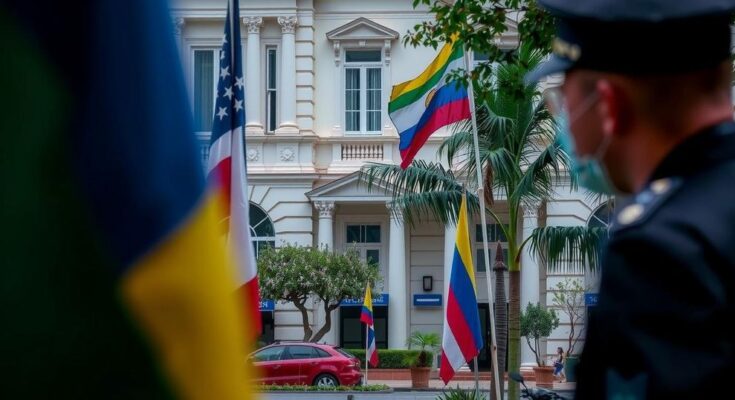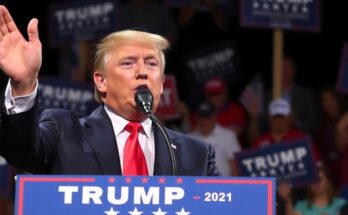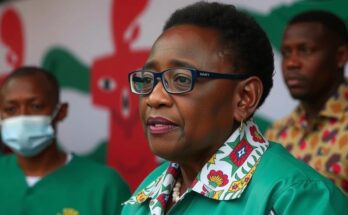Venezuelan Interior Minister Diosdado Cabello denied allegations of besieging Argentina’s Embassy in Caracas, responding to claims of harassment from President Javier Milei. The controversy stems from six opposition members seeking asylum at the embassy. The situation raises significant concerns about international law and diplomatic protection for those under asylum amid escalating political tensions.
Venezuela’s Interior Minister, Diosdado Cabello, has refuted claims that the government is besieging Argentina’s Embassy in Caracas, following accusations of harassment from President Javier Milei’s administration. The tension arises as six allies of opposition leader María Corina Machado sought asylum at the embassy earlier this year. Cabello dismissed Milei’s allegations, questioning what constitutes harassment in this context and labeling the Argentine leader as a fascist during a recent press conference for the ruling Partido Socialista Unido de Venezuela. In response, Argentina’s Foreign Ministry condemned the alleged harassment and demanded safe passage for those in asylum, citing military troop deployments and road closures around the embassy as violations of international law. Furthermore, the Argentine government reported power issues at the embassy. Cabello, maintaining a defiant stance, remarked that the embassy should be responsible for utility payments. Furthermore, he described Machado as a “terrorist” and claimed that impunity would no longer protect her or her associates. Brazil had previously offered to safeguard Argentina’s diplomatic interests but later rescinded their offer. The Brazilian administration has also refused to recognize Maduro’s electoral victory, expressing continued support for Argentina amid this diplomatic strain.
The diplomatic relations between Venezuela and Argentina have been strained due to the asylum situation involving María Corina Machado, a prominent opposition figure. After fleeing to the Argentine Embassy in Caracas, her associates have accused the Venezuelan government of intimidation tactics aimed at undermining their safety. This comes against a backdrop of contested elections and accusations of fraud that further complicate Venezuela’s political landscape. The tensions highlight broader issues regarding the treatment of political dissidents in Venezuela and international diplomatic protocols, further stressed by Argentina’s demands to uphold the rights of those under asylum.
In summary, the ongoing diplomatic friction between Venezuela and Argentina is characterized by accusations of harassment and violations of diplomatic protocols. Diosdado Cabello’s repudiation of the claims made by President Javier Milei’s government reflects Venezuela’s dismissive approach to international criticism, especially regarding the treatment of political adversaries like María Corina Machado. The situation remains tense, underscoring the complexities of Venezuela’s political atmosphere and its implications for diplomatic relations in the region.
Original Source: www.batimes.com.ar




